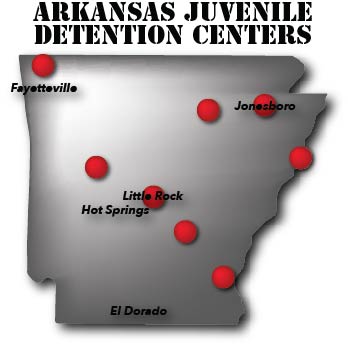Arkansas lawmakers heard proposals to reform the state’s juvenile justice system on Sept. 30.
The Division of Youth Services (DYS), a branch of the Arkansas Department of Human Services, is leading the proposals. According to the Northwest Arkansas Democrat-Gazette, the DYS is hoping to monitor how correctional facilities handle the diagnosis and treatment of mental disorders. The DYS director, Marcus Devine, said not all of the juvenile correctional facilities have the same standards when it comes to mental health services.
“We have some that are amazing, and some that are not so much,” Devine said to the Democrat-Gazette. “We want to make sure that the youths have the same level of services no matter where they’re arrested.”
Paul Kelly, senior policy analyst for Arkansas Advocated for Children and Families, said he does not think focus should be placed on adding programs to detention centers. Instead, he said there should be more focus on outreach programs that help prevent youth from being sent to detention centers.
“Won’t we be putting lipstick on a pig?” Kelly said to the Democrat Gazette. “We’ll be encouraging the use of incarceration. What you can do behind locked doors, you can do better in the community.”
Junior social work major Natalie Martin has a cousin who has been in and out of detention centers. She said she knows that community outreach is good, but that the priority should be on improving programs in juvenile halls.
“Our detention centers today are becoming less and less effective,” Martin said. “This is due to numerous reasons, but I think having poor mental health services can be a huge contributor. Many of our juvenile offenders also live with some sort of mental health issue. These centers often are not treating these underlying causes.”
According to ArkansasMatters.com, the DYS suggested that school systems can help with this. Adjunct professor of criminal justice Timothy Seay disagreed, though.
“I don’t think this is an issue that the schools need to be addressing alone,” Seay said. “Maybe a joint effort with the Youth Services Division and the Department of Education would be a suitable way of identifying at-risk juveniles who are not already in the system and then The Youth Services Division would be available to offer services to those juveniles.”
The DYS will continue presenting to lawmakers in January 2016.
